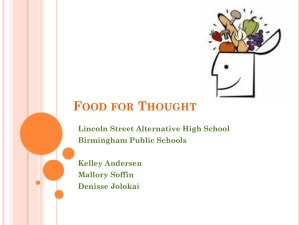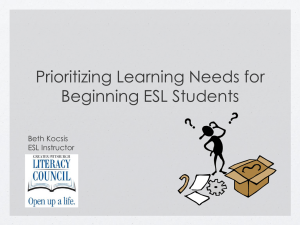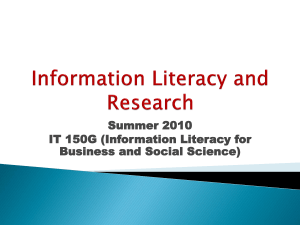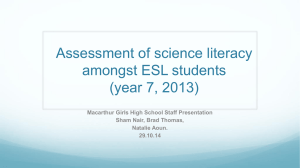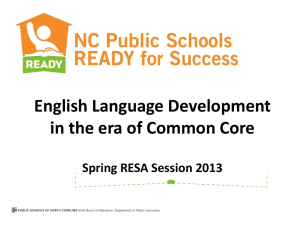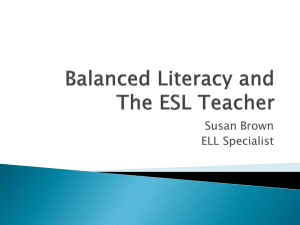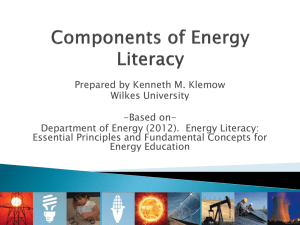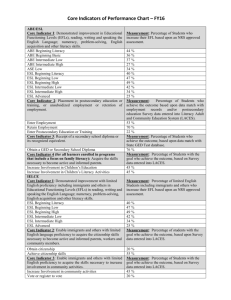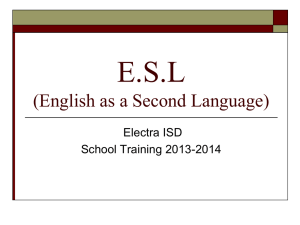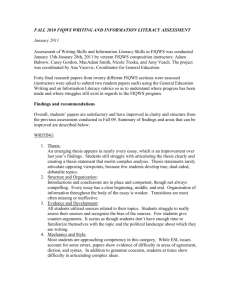to the above information as a PowerPoint ()
advertisement
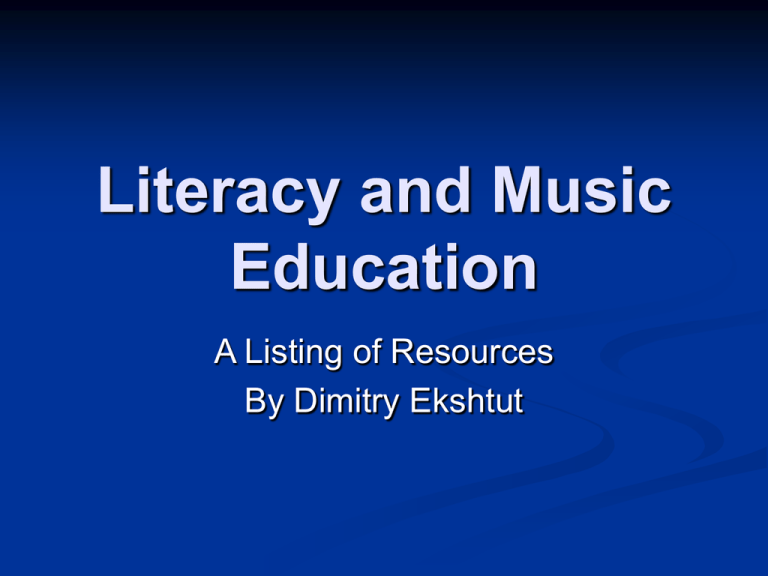
Literacy and Music Education A Listing of Resources By Dimitry Ekshtut Developing Music Literacy Through Original Shared Book Experiences http://www.vosa.org/paul/sales_folder/manins_art.htm Excerpt from Early Childhood Connections: Journal of Music and Movement-Based Learning. The author, Stuart Manins, develops a narrative describing the similar ways in which linguistic literacy and music literacy are developed and fostered in children - specifically as it relates to his native New Zealand. I particularly enjoyed the examples of children's work at the end of the article which illustrate Manins' points so eloquently. The children's work also serves as a good template for teachers wishing to borrow some strategies and lesson plans from Manins. Songs For Teaching: Using Music to Promote Literacy http://www.songsforteaching.com/index.html A great wealth of teaching materials (both free and for sale) can be found on this site. Songs For Teaching offers a large repository of lyrics, games, downloadable music or CDs, and other materials teachers can use to supplement their curriculum with music. The offerings look to be geared toward the classroom teacher (mostly elementary and below) looking to incorporate music into their classroom. There are entire sections devoted to Science Songs (with materials for Earth Science, Animals, Food/Nutrition, Biology, etc.), Social Studies, Special Education, Foreign Languages, and Life Skills. Highly recommended for resource-starved teachers. The Effects of Music Instruction on Emergent Literacy Capacities among Preschool Children: A Literature Review http://ecrp.uiuc.edu/v10n1/bolduc.html This concise scholarly article comes from the Early Childhood Research and Practice Journal, housed at the University of Illinois at UrbanaChampaign. Written by Jonathan Bolduc, University of Ottawa, the paper is a review and brief analysis of the recent literature (circa 2008) concerning the connection between music education and emergent literacy in preschoolers. The research evidence Bolduc cites makes for interesting reading, though little of it is entirely conclusive. Teachers looking to advocate for music education (and in turn bolster their case for their own jobs) would find a treasure trove of citable data here. However, I think that the linkages are correlative at best - the author includes a whole section on studies strictly confined to correlation - and I do not think it best for the long-term interests of the music education profession to base our professional self-worth solely on music's effect on literacy development in children. ESL Through Music http://www.forefrontpublishers.com/eslmusic/ This handy website/blog is curated by Dr. Suzanne Medina, professor of Graduate Education at Cal State and an expert in ESL (English as a Second Language) methodology and instructional design. Offers both rationale for the use of music in the ESL classroom as well as practical curricular examples/adaptations. ESL Through Music fills both the scholarly and pragmatic needs of music educators working with an ESL population and/or ESL teachers wishing to engage their students by incorporating music. The Inspired Classroom: Music and Literacy http://theinspiredclassroom.com/tag/music-and-literacy/ This blog by Elizabeth Peterson hosts a wide array of activities and other imaginative ways to incorporate music and storytelling. Peterson had her students create a short story based on Beethoven's "Coriolan Overture". There are entries such as "The Story in the Backwater Blues", "The Blues, Storytelling, and Science", "Reading and Drumming", "ESL, Literacy, and Jazz", and "Visualization in Music and Writing". There is a plethora of blueprints for new, inventive lesson planning. Strongly recommended for teachers wishing to expand the scope of their awareness of what they can do with music in the classroom.

